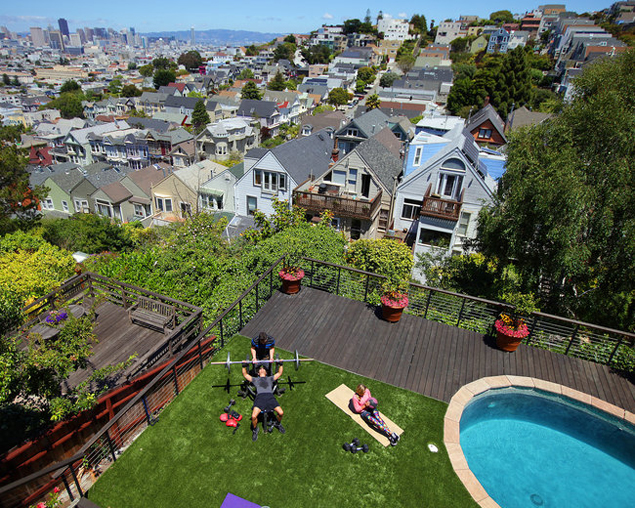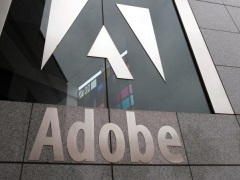- Home
- Social networking
- Social networking News
- A reality series intrudes on Silicon Valley, and finds it cringing
A reality series intrudes on Silicon Valley, and finds it cringing

When details about the show, tentatively titled "Silicon Valley," first seeped out, many here were offended, saying it would trivialize the difficult and important work being done in the valley. "Yuck, please stay in LA," Kevin Rose, an entrepreneur and venture capitalist, messaged his million-plus Twitter followers.
The valley may be even more upset when it sees how well the final product captures the raucous reality of the tech industry in 2012.
The series, which is now being filmed and is scheduled to be broadcast this winter, shows hard-partying youngsters vying to start companies in a frenzy reminiscent of the dot-com peak of 2000. It is a world where everyone seems to think that a good idea can lead to instant success and untold riches, because, after all, it has so many times before. It is a place where you feel like a failure if only one investor offers to finance you, instead of many begging to get in.
"Silicon Valley" the show was in part inspired by "The Social Network," the 2010 film about the founding of Facebook. Silicon Valley the place did not like "The Social Network" because the film said Mark Zuckerberg started Facebook as a way to impress girls instead of changing the world.
The fact that Mr. Zuckerberg's sister Randi is an executive producer of the series has therefore rankled. Ms. Zuckerberg, an executive at Facebook until last summer, declined to be interviewed, but defended her show on Facebook. "Inspiring more people to pursue an entrepreneurial American dream can only be a good thing," she wrote.
Not everyone agrees. One former Facebook colleague of Ms. Zuckerberg's took to Twitter to say she was "terrified" that the series would turn Silicon Valley "into a laughingstock of an industry."
"Trust me, enough people in this industry make laughingstocks of themselves," Ms. Zuckerberg replied. "We're just capturing reality!"
As the cameras rolled the other day, Ben and Hermione Way, a photogenic brother-and-sister team from England, discussed the $500,000 they got to develop a fitness app. "Four noes and one yes," Ben said, sadly. "Not exactly people throwing money at us." He added that he developed the idea for the business while drinking in a bar.
In another scene, at a sleek office where budding entrepreneurs rent cubicles, Kim Taylor described her start-up as based on personalized content in the luxury market for women. It is a little undefined, even to Ms. Taylor, who came here two years ago from Chicago. But then, her start-up is only a few days old.
"This is something I'm figuring out in real time," she told her mentor, explaining that she has no background in either coding or product development, traditional paths to success in the valley.
The show first floated into consciousness last fall with a Craigslist posting by a casting director. "As long as you're living life in the fast lane, we want to hear from you," it said. But it was a brief trailer, released by Bravo in April, that really set people off.
One line, delivered by Ms. Taylor, seemed to provoke special ire: "Silicon Valley is high school, but it's only the smart kids and everyone has a lot of money." (Later, she qualified her remarks on Twitter. "Apologies that I said Silicon Valley was like high school. I meant middle school.")
Denunciation was swift - on Twitter, Facebook and blogs.
"On behalf of all the entrepreneurs who've risked it all to build something, I am offended," wrote Francisco Dao, the founder of 50 Kings, a private community for technology and media innovators. One blog put it like this: "The Horror of Reality Television Comes to Silicon Valley."
Frances Berwick, Bravo's president, said that despite the provisional title, the series was not intended to capture the mood of the entire valley or depict the humdrum aspects of reality. "In the editing process, we try to get rid of everything that is going to be a snooze," she said.
The valley has generally been forbidding territory for Hollywood, at least until "The Social Network." "We're so bland," said Jamis MacNiven, whose restaurant Buck's is a popular valley gathering point. "People spend their weekends taking out last year's incredibly energy-efficient bulb and screwing in this year's even more energy-efficient bulb. No one ever dresses up except at the Burning Man festival, where they take off their clothes."
Before Ms. Taylor signed on to the show, she was working at a local media company that developed Facebook ads. The other cast members include the Ways; Dwight Crow, who started Carsabi, a Web site for selling used cars, in a Mountain View apartment that is messy enough to qualify as a toxic waste zone; and David Murray, who is developing a weight loss app ("In a really successful scenario I have a million active users by the end of the year").
The barriers to starting an Internet company have never been lower. Technology is cheap. All but the most important jobs can be outsourced, saving on costs ranging from salaries to office space.
Only the idea counts. When it goes viral, the company can quickly be worth hundreds of millions if not more. Yammer, a social network for companies, started in late 2008. Last month it was sold to Microsoft for $1.2 billion last month, and no one batted an eye.
"If you're a first-time entrepreneur, this is a phenomenal time," said Zaw Thet, a successful entrepreneur who is an adviser to Ms. Taylor.
The Ways are skilled enough in media to have been contemplating their own reality show before Bravo came along. They know what it takes. Listen to Mr. Way working out with their trainer in front of the cameras, and you can hear the reality show buttons being pushed:
"The thing about Silicon Valley is it forgives failure - but not as many times as we've failed."
"I can't believe how many entrepreneurs commit suicide."
"Last night, there were like four of my ex-girlfriends in the house - and I've only been here a year."
Their house is a $17,000-a-month crash pad with an outdoor pool - very unusual for chilly San Francisco - and three levels of decks from which to admire the excellent view. If you divide by the five roommates, Mr. Way said, it is not so much money.
To defray expenses, his sister sold $50 tickets to her birthday party. She also lined up sponsorships for the villa from a potato chip company and a coconut water supplier. The house has its own Twitter feed, which it uses to promote the chips. In Silicon Valley, the opportunities to be an entrepreneur never stop.
2012 The New York Times News Service
For the latest tech news and reviews, follow Gadgets 360 on X, Facebook, WhatsApp, Threads and Google News. For the latest videos on gadgets and tech, subscribe to our YouTube channel. If you want to know everything about top influencers, follow our in-house Who'sThat360 on Instagram and YouTube.
Related Stories
- Galaxy S24 Series
- MWC 2024
- Apple Vision Pro
- Oneplus 12
- iPhone 14
- Apple iPhone 15
- OnePlus Nord CE 3 Lite 5G
- iPhone 13
- Xiaomi 14 Pro
- Oppo Find N3
- Tecno Spark Go (2023)
- Realme V30
- Best Phones Under 25000
- Samsung Galaxy S24 Series
- Cryptocurrency
- iQoo 12
- Samsung Galaxy S24 Ultra
- Giottus
- Samsung Galaxy Z Flip 5
- Apple 'Scary Fast'
- Housefull 5
- GoPro Hero 12 Black Review
- Invincible Season 2
- JioGlass
- HD Ready TV
- Laptop Under 50000
- Smartwatch Under 10000
- Latest Mobile Phones
- Compare Phones
- Oppo A1i
- Oppo A1s
- Motorola Edge 50 Ultra
- Leica Leitz Phone 3
- Moto G64 5G
- Moto G04s
- iQOO Z9 Turbo
- Vivo T3x 5G
- Asus ZenBook Duo 2024 (UX8406)
- Dell Inspiron 14 Plus
- Realme Pad 2 Wi-Fi
- Redmi Pad Pro
- Cult Shock X
- Fire-Boltt Oracle
- LG 65-inch 4K Ultra HD Smart LED TV 65UR7500PSC
- Xiaomi 32 Inch LED HD Ready Smart TV (L32M6-RA-L32M7-RA)
- Sony PlayStation 5 Slim Digital Edition
- Sony PlayStation 5 Slim
- Daikin 1.5 Ton 3 Star Inverter Split AC (FTHT50UV16V/RHT50UV16V)
- Voltas 1.5 Ton 3 Star Inverter Split AC (183V CAX 4503692)

















